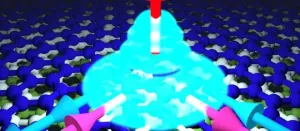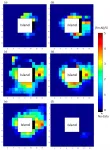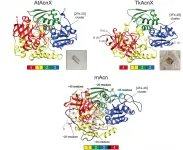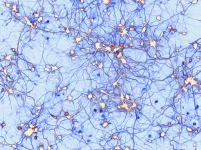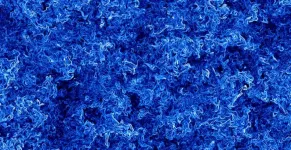(Press-News.org) Washington, DC (July 6, 2021) --The International Whaling Commission (IWC) was founded to regulate whaling. Today, it also increasingly focuses on the value of live whales for planetary health. A new workshop report confirms the great ecological value of whales to help mitigate climate change, transport nutrients, enhance marine productivity, and promote biodiversity in marine ecosystems.
The world's leading experts gathered for a three-day workshop in April that was co-hosted by the IWC and the Convention on the Conservation of Migratory Species of Wild Animals (CMS). The meeting came in response to a 2016 IWC resolution, introduced by the government of Chile, to compile scientific information about the ecological roles of cetaceans (whales and dolphins).
The workshop discussions focused on a number of primary ecosystem functions of cetaceans: nutrient transport both in the water column and between their foraging and breeding grounds, the impact of "whale falls" (when whales die and sink to the seafloor) on biodiversity and carbon storage, and the role of cetaceans as predators and prey. A series of expert presentations provided compelling evidence of the multi-faceted and beneficial impacts of cetaceans on marine ecosystems, such as their contribution to ocean productivity through their excrement (which can impact fishing yields) and their large bodies acting as carbon sinks (which can contribute to combating climate change).
"It is meaningful that the commission embraced the principles of the resolution that we proposed in 2016 for the protection of these marine mammals," said Jose Fernandez, Chilean commissioner to the IWC. "It is a strong recognition -- of a permanent and visionary nature -- about the need and obligation of our society to strengthen an ethical imperative. Its effects will translate into an instrument of enormous effectiveness for the protection and sustainable use of marine resources and ocean ecosystems, as well as to tackle the harmful effects of climate change."
"Scientific evidence demonstrating the valuable role of cetaceans as ecosystem engineers, including their ability to sequester carbon and enhance biodiversity, is expanding each day," said Dr. Joe Roman, a conservation biologist at the Gund Institute for Environment at the University of Vermont and the lead author of a primary report prepared for the workshop. "It is critical that the IWC and its members consider this evidence as part of their ongoing efforts to manage and recover cetacean populations."
The workshop highlighted how commercial whaling has contributed to the slaughter of nearly 3 million whales in the 20th century alone, significantly diminishing the animals' ability to mitigate climate change. As some whale populations have recovered following decades of protection, they have resumed their role in helping fix and store carbon. However, that beneficial role continues to be hindered by other threats to cetaceans, particularly bycatch in fishing gear.
"Commercial whaling not only caused the extinction or near extinction of several whale populations, but it also resulted in the catastrophic loss of their ecosystem benefits," said Sue Fisher, marine animal consultant for the Animal Welfare Institute. "We must learn from the mistakes of the past and, for the sake of the whales and ocean health, end commercial whaling once and for all."
"As the world grapples with the dire consequences of climate change, it is imperative that all solutions -- large and small -- are considered to mitigate these threats," said Steven Lutz, senior program officer and blue carbon lead at GRID-Arendal, a United Nations Environment Programme partner based in Norway. "Protecting cetaceans is essential to promoting oceanic blue carbon as a nature-based solution to our changing climate, and it's time for the governments of the world to recognize this important value at the United Nations climate change conference in November."
"The decimation of cetacean populations over the last 200 years has knocked the marine ecosystem out of balance," said Astrid Fuchs, policy manager at Whale and Dolphin Conservation. "We now know that by helping whale and dolphin populations recover, they can help to heal the ocean as part of a nature-based solution to climate and ecological emergencies. For this to happen, the IWC and its member countries must urgently strengthen protections for cetaceans, reducing the risks from bycatch, whaling, pollution and ship strikes, and creating safe places for them to live and breed."
"During the last five decades (i.e., within a whale species' life expectancy), humans have come to learn about their intelligence, social complexities, and whale culture. Now, science reveals more and more about their important role for a healthy ocean and nature-based solution to climate change," said Fabienne McLellan, co-director of international relations at OceanCare focusing to end direct hunts. "While whales became THE symbol for the environmental movement in the 1970s, they should be truly treated as THE symbol for our ocean as our life-support system. We need to protect them with all our efforts, as our life depends on them."
INFORMATION:
Researchers at the National Cerebral and Cardiovascular Center in Japan show that excessive blood pressure reduction for acute intracerebral hemorrhage is risky in people with decreased kidney function
Suita, Japan -- Stroke and chronic kidney disease are both difficult to handle in their own rights, but having a stroke when your kidneys are already poor is more than just double the trouble. A new study led by Kazunori Toyoda at the National Cerebral and Cardiovascular Center (NCVC) in Japan shows that excessive blood pressure reduction for acute intracerebral hemorrhage can have dire consequences when kidney function is low. The study was published in the scientific journal Neurology®.
Intracerebral hemorrhage is a disease for which effective treatment is expected ...
Rare-earth compounds have fascinated researchers for decades due to the unique quantum properties they display, which have so far remained totally out of reach of everyday compounds. One of the most remarkable and exotic properties of those materials is the emergence of exotic superconducting states, and particularly the superconducting states required to build future topological quantum computers. While these specific rare-earth compounds, known as heavy fermion superconductors, have been known for decades, making usable quantum technologies out of them has remained a critically ...
A new study suggests sea discoloration data obtained from satellite images as a novel criterion in predicting if eruption looms for an underwater volcano.
There have been frequent eruptions of submarine volcanoes in recent years. The past two years alone recorded the explosions of Anak Krakatau in Indonesia, White Island in New Zealand, and Nishinoshima Island in Japan. Observing signs of volcanic unrest is crucial in providing life-saving information and ensuring that air and maritime travel are safe in the area.
Although predicting when a volcano will erupt can be difficult as each behaves differently, scientists are on the lookout for these telltale signs: heightened seismic activity, expansion of magma pools, increases in volcanic gas release, ...
A pioneering cultivation strategy that recreates a mangrove environment in the lab has enabled identification of novel bacteria residing in Red Sea mangroves and will help improve understanding of mangrove ecosystem stability, resilience and sustainability.
Mangroves are highly productive, dominant coastal ecosystems that line between 60-70 percent of the world's tropical and subtropical coastlines. They harbor diverse microbial communities thought to make up 80 percent of the ecosystem's biomass. Many of the microbial species, families and taxa are unknown to science.
The cultivation strategy was developed by a team of KAUST researchers, including Fatmah Sefrji and Ramona Marasco.
"Red Sea mangroves are particularly interesting because they represent an extreme and unique ...
The aconitase superfamily currently contains four functional enzymes including the archetypical aconitase (referred to as "other aconitase enzymes"), and one hypothetical aconitase X (AcnX). The aconitase enzymes catalyze the homologous stereospecific isomerization, and their three-dimensional structures and catalytic mechanisms including the [4Fe-4S] iron-sulfur cluster are very similar each other (Fig. 1a). Therefore, the aconitase superfamily (enzymes) is a typical example that is suitable for the so-called "recruitment hypothesis of enzyme evolution"; the gene duplication of multi-specific enzymes, followed by the narrowing of substrate specificity (ref. 1).
AcnX (subfamily) is further classified into "AcnXType-I" consisting of a single ...
Researchers at The University of Queensland, working to gain a better understanding of how brain cells work, have discovered the underlying mechanism of a rare genetic mutation that can cause epilepsy.
Dr Victor Anggono from UQ's Queensland Brain Institute said his team made the ground-breaking findings while researching nerve cell communications, which are an important process in normal brain function.
''We're both excited and astounded to make such an important contribution to the field of cellular and molecular neuroscience,'' Dr Anggono said.
He stressed that the mutation was extremely rare, with only one reported case in the world to date.
Dr Anggono's team studied protein structures, called receptors, that ...
A study by researchers in the Scene understanding and artificial intelligence (SUNAI) research group, of the Universitat Oberta de Catalunya's (UOC) Faculty of Computer Science, Multimedia and Telecommunications, has developed a method that can learn to identify mosquitoes using a large number of images that volunteers took using mobile phones and uploaded to Mosquito Alert platform.
Citizen science to investigate and control disease-transmitting mosquitoes
As well as being annoying because of their bites, mosquitoes can be the carriers of pathogens. Rising temperatures worldwide are facilitating their spread. This is the case with the tiger ...
While the UK was in lockdown, certain species of captive amphibians became more visible, a new study suggests.
The COVID-19 pandemic forced the closure of zoos across the UK for several months from March 2020, with gradual re-openings from summer into autumn and winter.
These closures provided a team of researchers, from the University of Exeter and WWT Slimbridge Wetland Centre, a unique opportunity to study the effect of visitor presence on several species of amphibian at Slimbridge.
The project assessed the number of individuals of six species - common toad, common frog, smooth newt, pool frog, golden mantella and golden poison dart frog - visible to observers while their exhibit was closed, when it partially reopened to more staff and when it reopened to visitors.
"Amphibians ...
Lung cancer has the highest mortality rate of all cancers, and treatment options are extremely limited, especially for patients with oncogenic mutations in the KRAS gene. A great deal of hope was invested in the licensing of immune checkpoint inhibitors, but the reality is that some patients respond very well to this treatment while it is completely ineffective in others. In a paper just published in Science Translational Medicine, a MedUni Vienna research group led by Herwig Moll (Center for Physiology and Pharmacology) identified a potential marker for the success of immunotherapy in lung cancer patients and explained the underlying molecular processes.
K-Ras it is a monomeric G protein that plays a key role in the growth of malignant ...
When you pour cream into a cup of coffee, the viscous liquid seems to lazily disperse throughout the cup. Take a mixing spoon or straw to the cup, though, and the cream and coffee seem to quickly and seamlessly combine into a lighter color and, at least for some, a more enjoyable beverage.
The science behind this relatively simple anecdote actually speaks to a larger truth about complex fluid dynamics and underpins many of the advancements made in transportation, power generation, and other technologies since the industrial era--the seemingly random chaotic motions known as turbulence play a vital role in chemical and industrial ...
